A younger bee begging for nectar from an older bee – typical feeding behavior when workers return to the hive.
Going into summer 2012 the bees were working hard, building new comb and filling it with pollen and nectar stores, making honey for the long winter here. It takes a single colony about 100lbs of stored honey to make it through our Minnesota cold.
The clover was blooming and our entire field was full of busy little ladies!
About to add a third box to the top of the tower here. For an idea of what 100lbs of honey looks like – those two ‘deep’ boxes on the bottom plus a third will hold about that much. With the weight of the boxes, the frames, the honeycomb and bees that stack will weigh about 200lbs. Beekeeping requires quite a lot of heavy lifting!
This is a top-down view of the hive stand – there is an angled ramp which gives the incoming bees a place to land and climb up into the hive entrance. Bees leaving the hive will basically fly out and up, to the level of the grass or vegetation height and continue straight as long as they can – if they reach obstacles they will again move up and fly at that level for some distance, scouting for food sources.
This is what the hive looks like inside, with two frames removed. Lots of busy bees working on comb.
We didn’t take the initial supplemental feeders off fast enough so a small colony of ants took advantage of the situation and moved in. They weren’t in the main part of the hive and didn’t seem to be bothering the bees, but we cleaned them off and took the extra food away. Bees will always prefer their own honey to supplemental feed, so as soon as the new colonies had their own stores we stopped offering it.
This is something called ‘burr comb’ – honeycomb the bees build in places you don’t want it (for management reasons and being able to work within the hive). We have to scrape it off or they will make crazy constructions all over the place instead of moving into the new boxes we provide for expansion.
Here you can see the development progress of new comb built onto a hive frame. It’s very interesting to see how they design rounded corners (how they would leave natural comb in the wild) before they fill out the space completely.

 July 31st, 2012
July 31st, 2012  Foxfeather Ženková
Foxfeather Ženková 
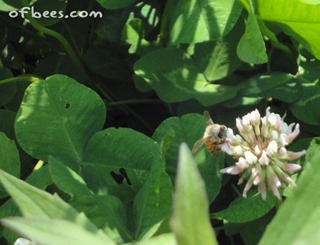
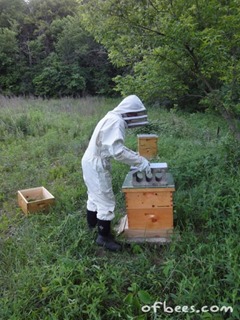
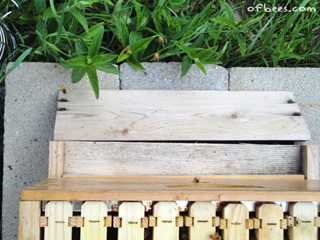
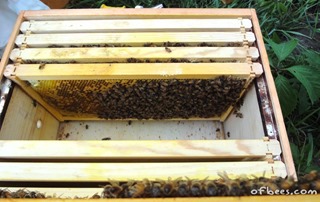
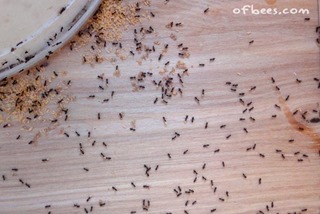
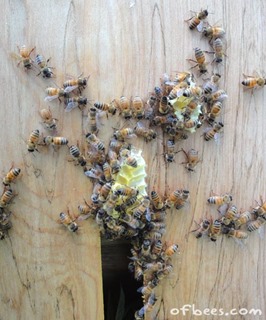
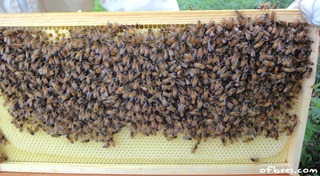
 Posted in
Posted in 
